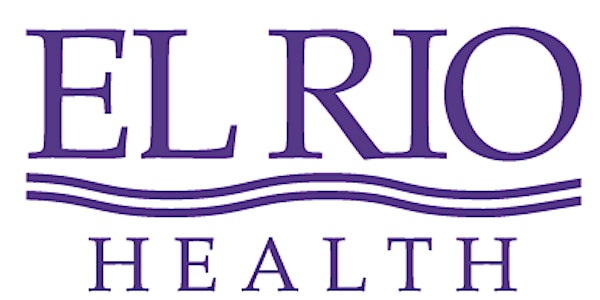
The Ethics of Medical Intervention for Transgender Youth
Date and time
Location
Manning House
450 West Paseo Redondo Tucson, AZ 85701Description
Learning Objectives:
1. Describe health disparities that transgender children and adolescents experience, including within group differences among transgender youth.
2. Identify barriers and resources that contribute to or alleviate these disparities (e.g., access to affirmative healthcare, family and peer rejection support).
3. Assess the potential benefits, risks, and alternatives to puberty suppression, gender affirming hormone therapy, and "top surgery" for the treatment of gender dysphoria.
4. Describe the typical development of decision making capacity in adolescence and recommend ways to .improve adolescents participation in medical decision making.
When El Rio Community Health Center started a medical home for transgender youth, our goal was to provide affirming primary care as well as medical interventions such as GNRH analogues (puberty blockers) and gender-affirming hormones to youth who often do not have access to such services. A study by Gridley, et al. (2016, Journal of Adolescent Health) demonstrated that transgender and gender non-conforming youth have problems finding health services where providers are adequately trained, where patients are called by their chosen name and pronoun, where medical treatments were given on a timely, straight-forward basis and where insurance wasn't a barrier. The needs of transgender youth are huge. We know that 41% of transgender adults attempt suicide, 19 percent are refused medical care because of their gender identity and a shocking 2 percent have been violently assaulted in a doctor's office (2016 National Center for Transgender Equality survey). Transgender youth tell us that 75% feel unsafe at school, including 70% who do not use the restroom at school (2015 School Climate Survey by National Education Association and Gay Lesbian Straight Educators Network). But there are bright spots. Research shows that transgender children who socially transition and are supported by their families have no more anxiety and depression than age-matched cisgender peers (Olson, et al. Pediatrics 2016). Transgender youth who receive puberty suppression in adolescence and cross-sex hormones a few years later have rapidly improving psychological functioning and become well-functioning adults (de Vries, et al. Pediatrics 2014). Despite the findings of risks of not treating youth and the benefits of treating them early, there are those who continue to question the ethics of treatment for gender identity with medical interventions before the age of consent.
Question we will explore in this symposium:
1. What does medical treatment of transgender youth mean?
2. What are the risks of not treating transgender youth?
3. What are the benefits of medical interventions for transgender youth?
4. How does one make bioethical decisions when no choice is without ramifications?
5. Is the treatment of youth fit within medical providers' ethical primary concern to 'Do No Harm”
Bio’s for Speakers:
Bio for Dr. Armand H. Antommaria
Armand H. Matheny Antommaria is the Director of the Ethics Center, the Lee Ault Carter Chair of Pediatric Ethics, and Professor in the Division of Hospital Medicine at Cincinnati Children’s Hospital Medical Center. Armand received his medical degree from Washington University School of Medicine in Saint Louis and his PhD in religious ethics from the University of Chicago Divinity School. He completed his pediatric residency at the University of Utah. He was a faculty member at the University of Utah for 10 years before joining Cincinnati Children’s in 2012. His research focuses on a variety of issues in pediatric clinical ethics including religiously motivated refusals of medical treatment, conscientious objection, and donation after circulatory death. He has served on the American Academy of Pediatrics’ Committee on Bioethics and the American Society for Bioethics and Humanities’ Clinical Ethics Consultation Affairs Committee. The speaker has
no relevant conflicts of interest related to the course
Dr. Russell Toomey is University of Arizona Distinguished Scholar and Associate Professor of Family Studies and Human Development at the University of Arizona. He is also the Chair of the Youth Development and Resilience research initiative of the Frances McClelland Institute for Children, Youth, and Families, as well as an Associate Editor for the Journal of Adolescent Research. Dr. Toomey received his Ph.D. in Family Studies and Human Development from the University of Arizona and completed an NIH-funded postdoctoral fellowship at Arizona State University in the Prevention Research Center and the T. Denny Sanford School of Social and Family Dynamics. In 2016, he was awarded the Early Career Research Award by the Society for Research on Adolescence. He studies the processes by which transgender and sexual minority youth thrive and are resilient despite the barriers and challenges they encounter in society (for example, discrimination). His focus is on health-related outcomes, such as suicidality, among youth who identify or express non-privileged sexual orientation, gender identities and expressions, and ethnicities, and the intersections among these identities. His research identifies ways to support school and family resources, and coping mechanisms that contribute to health, well-being, and educational outcomes. At the University of Arizona, he teaches undergraduate and graduate courses on adolescent development, human sexuality, and advanced graduate-level applied statistics, and has mentored over two dozen undergraduate and graduate students. The speaker has
no relevant conflicts of interest related to the course